Don’t hold the public hostage to press demands

We respect the right of students from polytechnic institutes to protest for their cause. In a country where technical education is often neglected, their six-point demand—including the removal of "controversial" craft instructors recruited after 2021, restructuring the diploma engineering programme into a four-year course, reserving 10th-grade engineering posts for diploma graduates, establishing a separate Ministry of Technical and Higher Education, etc.—merits both policy consideration and constructive dialogue. However, we cannot condone the manner in which they exercised their right to protest, infringing on the public's right to free movement.
Wednesday's road and railway blockades, halting communications in more than a dozen districts as part of a coordinated movement, were yet another example of how disruptive such protests can be. According to a report by this daily, in Dhaka, over 1,000 students from Dhaka Polytechnic Institute blocked the Satrasta intersection in Tejgaon for nearly eight hours. In Cumilla, over 500 students blocked the Dhaka-Chattogram highway for hours. Similar protests were also reported in Chattogram, Rajshahi, Barishal, and elsewhere. As a result, public transport systems broke down, emergency services were delayed, and gridlocks paralysed key intersections and highways, causing massive suffering. In one instance, the military had to be deployed to disperse protesters. Whether their firing of blank shots was necessary or even authorised may be debated, but the mere fact that such measures were needed shows how unmanageable the situation had become.
While the protesters later announced a relaxation of a planned "rail blockade" on Thursday, pending the outcome of a meeting with the relevant authorities, they eventually expressed dissatisfaction with the discussions and declared plans to launch even tougher programmes. If executed, it can only mean more suffering. This is not constructive activism; this is holding the public hostage with the sole intention of forcing a decision, which is unacceptable. We cannot allow legitimate grievances to be pursued through illegitimate means. We have seen this tactic used repeatedly since the July uprising, as numerous groups—students in particular—embraced their newfound freedoms of speech and assembly in ways that often caused chaos and unrest.
It must be acknowledged that this government, unlike its predecessor, has shown greater responsiveness to protest-driven demands. For instance, soon after Wednesday's protests, Mostafizur Rahman Khan, the principal of Dhaka Polytechnic Institute, was removed from his post. This is not the kind of response students would have received under the old order. So they, too, must show greater restraint, and pursue their cause through peaceful means. We also urge the government to send a stronger message against public disruptions. As the country edges closer to the next election, disruptive protests and blockades may likely continue. So the government must enable the police to act decisively in such situations. It may also consider designating specific areas for protest gatherings, which would protect both the protesters' rights and the public's.

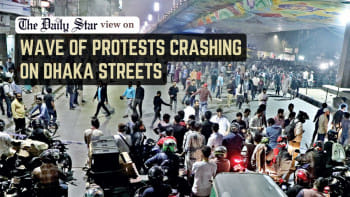
 For all latest news, follow The Daily Star's Google News channel.
For all latest news, follow The Daily Star's Google News channel. 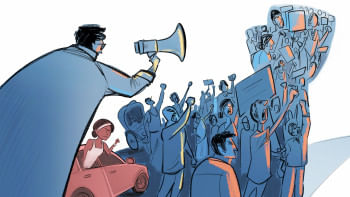
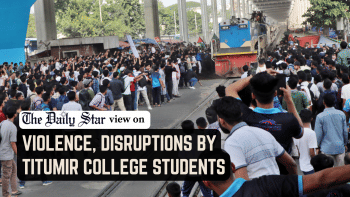


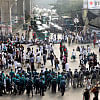





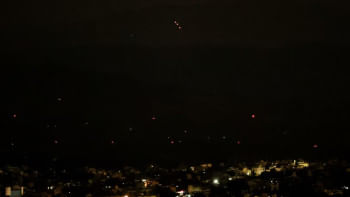
Comments